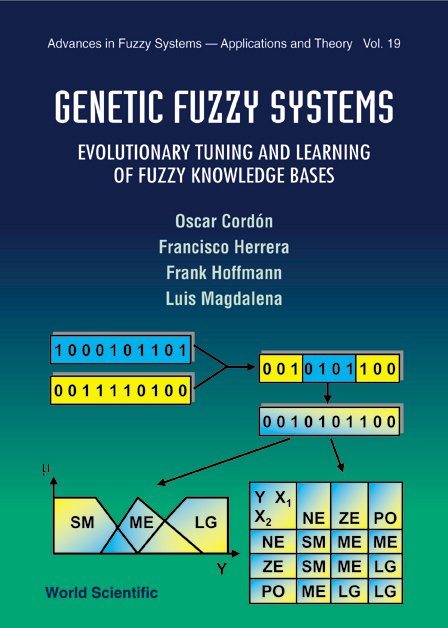Fuzzy Rule-Based Systems
The following sections are included:
Framework: Fuzzy Logic and Fuzzy Systems
Mamdani Fuzzy Rule-Based Systems
The knowledge base of Mamdani fuzzy rule-based systems
The inference engine of Mamdani fuzzy rule-based systems
The fuzzification interface
The inference system
The defuzzification interface
Example of application
Design of the inference engine
Advantages and drawbacks of Mamdani-type fuzzy rule-based systems
Variants of Mamdani fuzzy rule-based systems
DNF Mamdani fuzzy rule-based systems
Approximate Mamdani-type fuzzy rule-based systems
Takagi–Sugeno–Kang Fuzzy Rule-Based Systems
Generation of the Fuzzy Rule Set
Design tasks for obtaining the fuzzy rule set
Kinds of information available to define the fuzzy rule set
Generation of linguistic rules
Generation of approximate Mamdani-type fuzzy rules
Generation of TSK fuzzy rules
Basic properties of fuzzy rule sets
Completeness of a fuzzy rule set
Consistency of a fuzzy rule set
Low complexity of a fuzzy rule set
Redundancy of a fuzzy rule set
Applying Fuzzy Rule-Based Systems
Fuzzy modelling
Benefits of using fuzzy rule-based systems for modelling
Relationship between fuzzy modelling and system identification
Some applications of fuzzy modelling
Fuzzy control
Advantages of fuzzy logic controllers
Differences between the design of fuzzy logic controllers and fuzzy models
Some applications of fuzzy control
Fuzzy classification
Advantages of using fuzzy rule-based systems for classification
Components and design of fuzzy rule-based classification systems
Some applications of fuzzy classification



